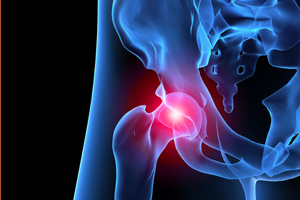
The FDA is expected to propose a new rule that would alter the regulation of metal-on-metal hips, placing the devices firmly in a higher-risk classification that requires more stringent FDA review.
Once finalized the rule may require that companies such as Johnson & Johnson (NYSE:JNJ), Smith & Nephew (FTSE:SN, NYSE:SNN), Biomet and others resubmit FDA applications for the metal hip implants they already sell in the U.S., or else remove those devices from the market.
The proposed rule is set to be issued today, but may not be finalized for another year, buying orthopedic device companies some time to offer suggestions on the proposal and prepare for a possibly unfavorable outcome, according to a New York Times report.
Metal-on-metal hip implants currently sit in a sort of regulatory gray area, considered in some respects to be high-risk devices, but regulated as moderate-risk devices for the purposes of FDA review. Companies seeking the FDA’s nod to introduce a new MoM hip to the U.S. market have only to demonstrate that the new implants are "substantially equivalent" to ones already on the market, skipping the clinical trials that are required of the higher-risk category of devices.
The new FDA rule would seek to bump MoM hips formally up to the high-risk category, which would require new MoM hips to undergo the more stringent clinical trial process. The rule would also retroactively affect companies with hips already on the market, granting them about 3 months to submit to the FDA new applications complete with clinical trial data demonstrating safety and effectiveness.
Legal and regulatory scrutiny honed in on MoM hips following the high-profile August 2010 recall of Johnson & Johnson subsidiary DePuy Orthopaedics’ ASR XL Acetabular and ASR Hip Resurfacing systems. Johnson & Johnson pulled the devices off the market after receiving reports that a higher-than-normal number of patients required surgeries to correct or remove defective implants.
Some reports warned that hundreds of thousands of patients may have also been exposed to toxic compounds from metal-on-metal implants, putting them at risk of developing cancer, cardiomyopathy, muscle and bone destruction and changes to their DNA.
Since then the controversy has ensnared device makers such Smith & Nephew and Biomet, and patient injury lawsuits are piling up against the companies, even against MoM hip implants that haven’t undergone a recall.
Johnson & Johnson paid as much as $600,000 to 3 patients in the 1st settled lawsuits accusing the company’s metal-on-metal implants of causing injuries. Some analysts have predicted that J&J may end up paying up to $1 billion in liability and other costs.

